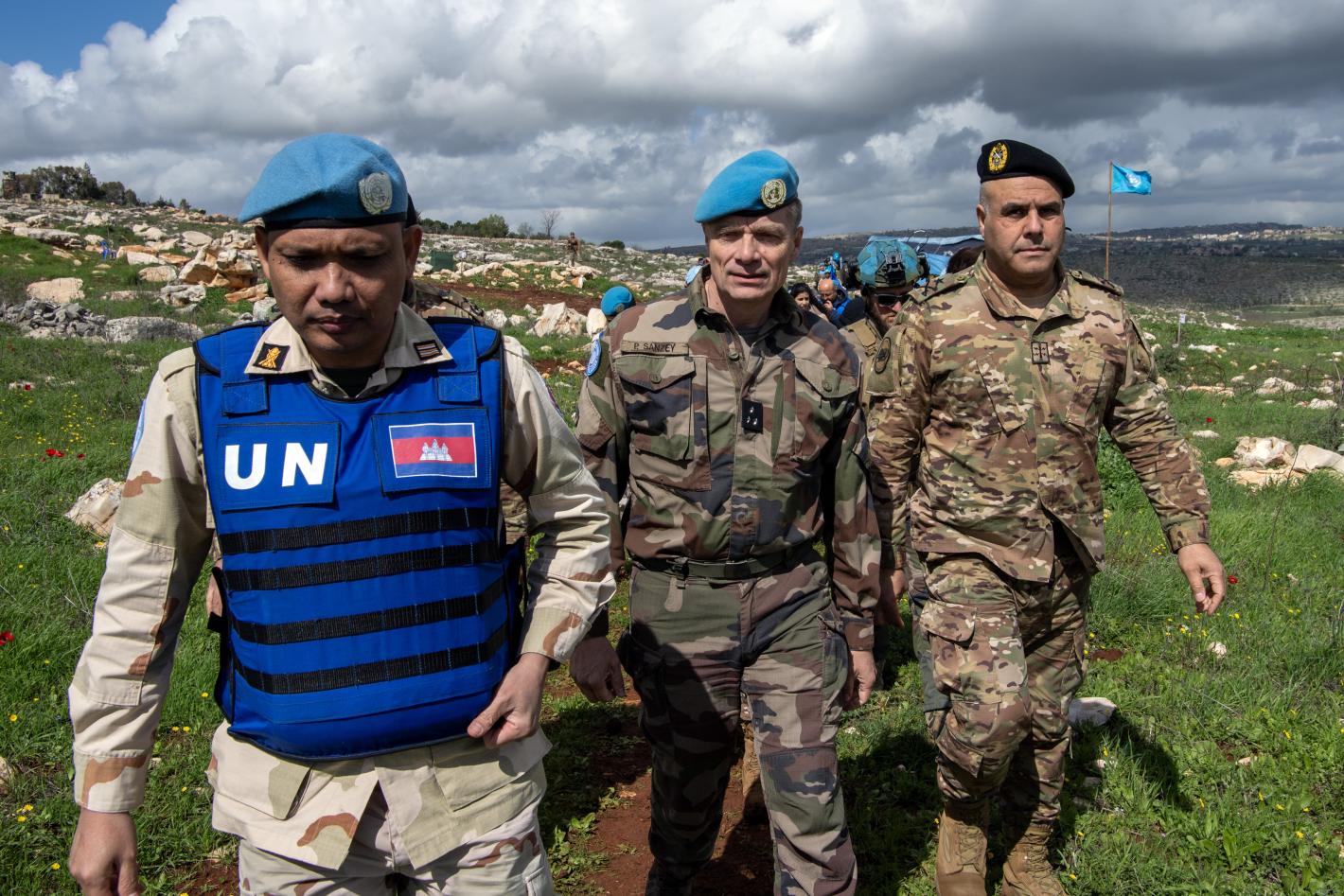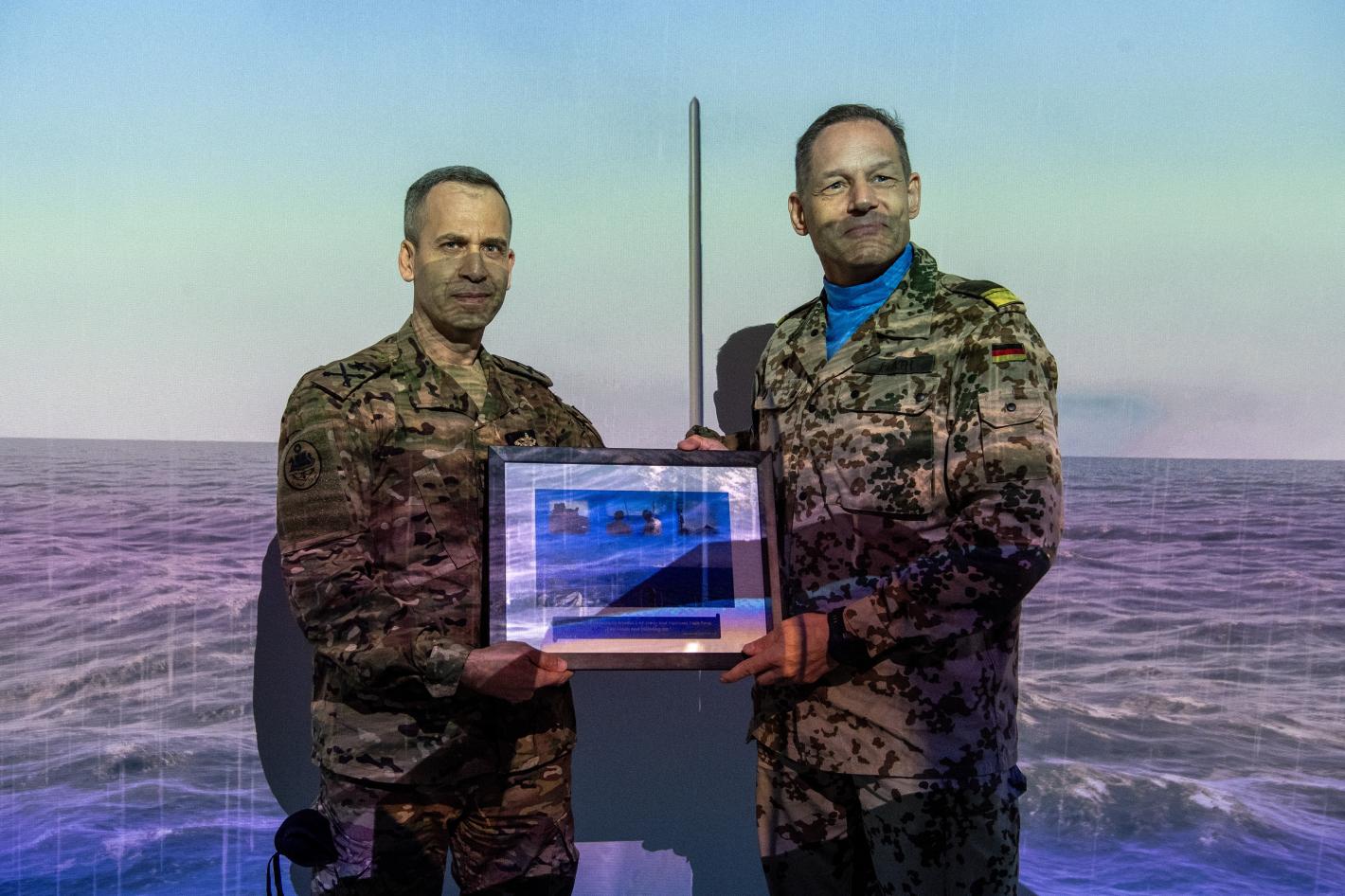The first Naval Force to be part of a UN peacekeeping mission (UNIFIL Maritime Task Force) has been deployed since October 2006 upon request of the Lebanese Government to assist the Lebanese Navy in securing the territorial waters and to help prevent the unauthorized entry of arms or related material by sea into Lebanon.
Since then Germany, Italy, France and Belgium have by rotation assumed Maritime Task Force Command. On the 1st of December 2009 I assumed Command of the MTF for the next six months on behalf of Italy.
In order to accomplish the assigned mission, MTF Units operate in the Area of Maritime Operations (AMO) that runs along the entire coastline of Lebanon and stretching westward up to 43 nautical miles into the Mediterranean Sea. The first 12 nautical miles from the Lebanese coastline constitute Lebanese territorial waters, beyond which are international waters. MTF Units conduct continuous surveillance of merchant traffic, particularly along the approach corridors to the three main harbours of Lebanon: Beirut, Tripoli and Sidon.
MTF's main tasks are: One, to establish a naval presence and surveillance over the Area of Maritime Operations, with priority to the Lebanese territorial waters; and two, to conduct Maritime Interdiction Operations (MIO), including identification and, within the Lebanese territorial waters, stopping/diverting or referring suspect Merchant Vessels for inspection by Lebanese authorities. If requested by the Lebanese Armed Forces-Navy (LAF-Navy), MTF may also board and inspect a suspect vessel. The long term objective of MTF is to hand over security responsibilities to the LAF-Navy in a gradual manner. This is directly related to the LAF-Navy acquiring the requisite capabilities to secure its maritime borders and assume effective security control over Lebanese territorial waters. Already in the past three years LAF-Navy's capabilities have increased through bilateral donations of patrol craft, radar assets and other naval equipment, and the regular training provided by MTF to LAF-Navy personnel. The MTF strength during the same period has decreased so that the MTF is currently operating at less than half the capacity of 18 vessels foreseen during its initial deployment in 2006.
In order to maintain a clear Recognized Maritime Picture (RMP) in the whole area, a Maritime Interdiction Operation Commander is continuously on task. This duty is normally assigned to frigates, which are larger ships with the appropriate command and control capabilities. Vigilance and control of ships crossing the Area of Maritime Operations is executed by using the Automatic Identification System, a capstone tool that increases the surveillance area.
The identification process of all traffic is critical: it allows to classify a contact as "suspect" or "clear" (to proceed) upon completion of hailing. All merchant vessels classified "suspect" are monitored and, if inbound to a Lebanese harbour, are referred for inspection to LAF authorities.
In this process the cooperation between MTF and LAF-Navy is fundamental: to assist in his identification tasks, the Maritime Interdiction Operation Commander has on board his ship a Lebanese Liaison Officer who embarks on a weekly basis.
The second pillar of MTF mission is to assist and train the LAF-Navy to gain the ability to fully control their territorial waters. The main training goal is to enable LAF-Navy to acquire the ability to establish, evaluate and maintain a surface picture. In this process the Naval Operation Centre (NOC), the Coastal Radar Stations and the patrolling naval assets have to be fully involved.
The main activities of the MTF program include tailored theoretical as well aspractical studies according to the principles of 'train the trainers' and 'train as you operate' in a mutual support mode during actual operations. This has been implemented through the Combined Maritime Interdiction Operations, which involve the coordinated employment of the two LAF-Navy Components (Patrol Boats and the Coastal Radar Organization) with the UNIFIL MTF operating in the larger Area of Maritime Operations. Furthermore, a Quick Reaction Sea Component has been established by LAF–Navy consisting of four units based in Tripoli, Jounieh, Beirut and Tyre which can be scrambled in a short time to interdict suspect vessels.
Several other sectors of cooperation and integration have been established. During 'stage at sea', for example, up to seven Lebanese sailors routinely embark on board of UNIFIL ships, to increase their naval skills. In this new concept, the LAF-Navy takes a direct part in the UNIFIL Maritime Interdiction Operations.
All these efforts have contributed to the implementation of UN Security Council resolution 1701, proved as a strong deterrence against illegal activity in the area and have helped generally enhance the security of maritime shipping, with significant benefits to the economy, trade, welfare and overall stability of Lebanon.
Rear Admiral Paolo Sandalli UNIFIL MTF Commander - ()






